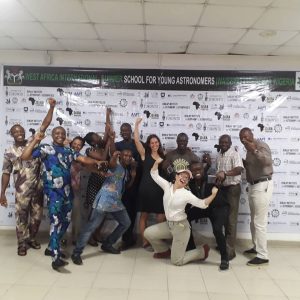The Pan-African School for Emerging Astronomers (PASEA) formerly known as West African International Summer School for Young Astronomers (WAISSYA) has remained one of the flagship projects of the West African Regional Office of Astronomy for Development (WAROAD), since the first edition was initiated in year 2013. PASEA 2024 is the sixth in the entire series as well as the second in the series as a Pan-African biennial school which is primarily designed as an innovative short-course in astronomy for undergraduates, post-graduates as well as teachers in high schools across the whole of Africa. PASEA 2024 will give students the opportunity to develop their interest in astronomy, inspire their scientific curiosity and enhance their practice of scientific thinking; while instructors have the opportunity of exchanging educational ideas between Africa and the rest of the world. As part of a sustained effort by the West African Regional Office of Astronomy for Development to synergize with other Regional Offices of Astronomy for Development (ROAD) in Africa; PASEA 2024 is slated to take place in Nairobi Kenya. The event will be a two-week programme (1-week each of instructor’s workshop and student’s programme) which will be organized and taught through a global collaboration of astronomers using effective and efficient educational/research principles. It consists of: (i) Intensive pre-school workshop for instructors on inquiry-based teaching which helps instructors to build collaborations by working together in pairs.(ii) Two parallel streams for students: undergraduate stream which covers the basics of astronomy/space science as well as post-graduate stream which focuses on optical and radio astronomy research. The undergraduate and post-graduate curricula were developed by our team of instructors and have been iteratively improved upon over the last five successive schools; while three co-directors spent months in developing the instructor’s curriculum which has also been improved upon over the last five series of schools. PASEA 2024 will combine: lectures, interactive problem-solving sessions, hand-on experience, inquiry-based activities, astronomy outreach program and symposium to teach astronomy concepts and scientific thinking that will develop the knowledge base and skills of African science students/teachers. This will in turn support and enhance the human capacity needs that will drive the economic development of Africa through science, technology and innovation. With collaborations between Africans and the rest of the world through PASEA, a sustained implementation of this program over time would lead to an increase in the number of students/individuals who are confident in applying the innovative scientific skills learned to their individual studies, researches and careers. These will motivate them to apply the skills learnt, leading to enhanced employability and greater contributions to their individual national and African economy at large.

